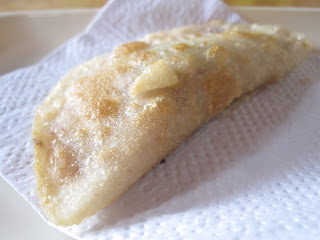The day started off with an early breakfast of eggs and bread at the
Coraza Hotel in Otavalo. The bus ride to the hot springs took around 2 hours,
with our arrival at 10 AM.
The springs were tiled and filled with families and children, all swimming
around with inflatable tubes. The land surrounding hot springs were adorned
with lush green shrubs, calla lilies, and geraniums. The first pool was warm
tempered, which many of the kids enjoyed. They swam around, had contests on how
long they could hold their breath underwater, and generally showed off swimming
prowess to their peers. After some goading by Jen, the teens were encouraged to
move to other pools. The second pool was steaming hot, drawing hesitant
reactions from some, while others greeted it with enthusiasm. Eventually
though, everyone did try their hand at the hotter pool. Jen and Ms. Weinwurm
were not swimming that day, so they took photos of kids doing handstands in the
water and of the eager to pose students. The third pool we tried was icy cold,
but we were informed by Jen that the cold water was good for health and
circulation. Jen took photos of our shocked faces as we sprinted across the
chilling pool. The fourth pool was around the same temperature as the first
pool, but shallower than the previous three which were at a depth of around 5
feet. A few students lied down on the foot deep pool while Ms. Weinwurm took
photos.
As our stay at the hot springs drew to a close around 12 PM, we changed
into our regular clothes and bought snacks as some grew hungry after swimming.
We piled onto the bus and most kids either slept or played cards. Around 2 PM,
we reached our lunch destination which was just outside of Quito. We had
empanadas, chicken and rice, beans and potatoes for the vegetarians, and sweet
breads for dessert. After the very filling meal, we returned to the bus. On the
way to Banos, we took in the gorgeous scenery, filled with volcanoes,
mountains, and other geologic outcroppings. Javier talked to us about the
invasive plants in the area as we neared Banos. Pine trees and eucalyptus trees
were introduced in the 1960s and 1970s as part of a reforestation project. The
pine trees are particularly detrimental to the nearby environment—they take in
a lot of water, and their needles are acidic.
He opened up the talk to general questions, and we learned about the
Ecuadorian governmental system, voting system, early history, and women’s
rights. Ecuador has a presidential government, and the president can stay in
power for 5 year terms for an indefinite period of time, which was set in place
by the new constitution by the current president. The current president is a
socialist, and has been increasing healthcare benefits, education, and
infrastructure all around Ecuador. He has especially been focusing on bettering
the livelihoods of the poor. The city of Guayaquil is the largest outcropping
of opposition to the president, because they are the financial capital of
Ecuador, and the capitalist tendencies of the country are clashing with the
socialist views of the remainder of the country. Javier talked about the 13
political parties, and the recent change in currency that Ecuador underwent. In
1998, it was having severe inflation, from the exchange rate going from 3000
sucres to 1 USD to 25000 sucres to 1 USD in 2 years. By 2000, the government
phased out the sucre and introduced the USD for greater economic stability in
the area. The USD raised the price of living in Ecuador, though wages had not
yet caught up with the change in cost of living, throwing the country into a
recession. With time though, Ecuador has recovered and is opening up its ports
to greater exports.
For the rest of the time on the bus, we listened to Adonis’ iPod, and sang
along, off key, to classic songs from the 50s all through the way to the 90s,
much to the dismay of the cars and passerbys who were subjected to our singing.
We arrived at Monte Salvo at 7 PM, and had a buffet style dinner at 8PM.


















you call this a service trip? looks more like a vacation
ReplyDelete